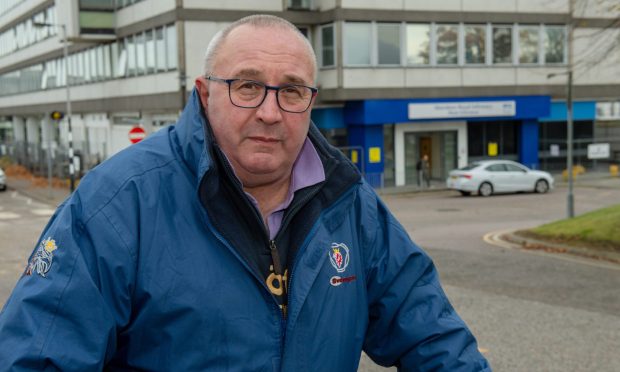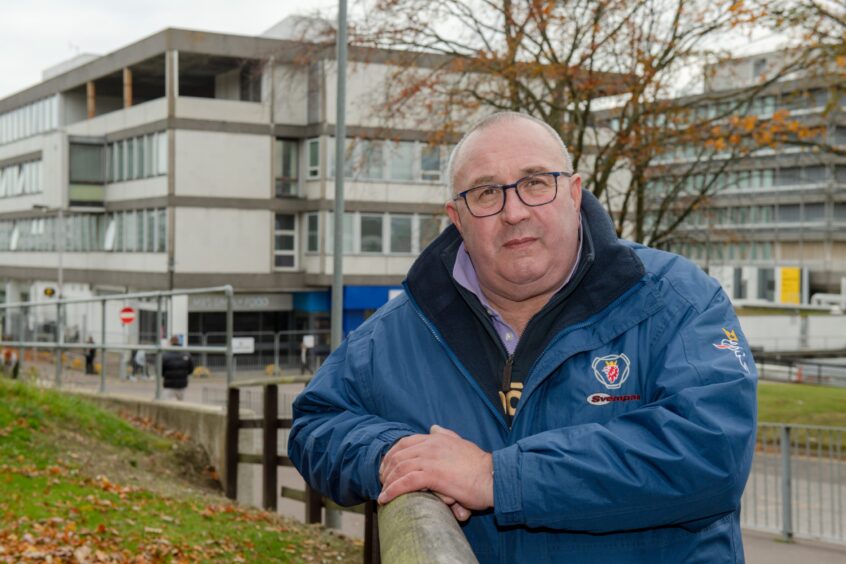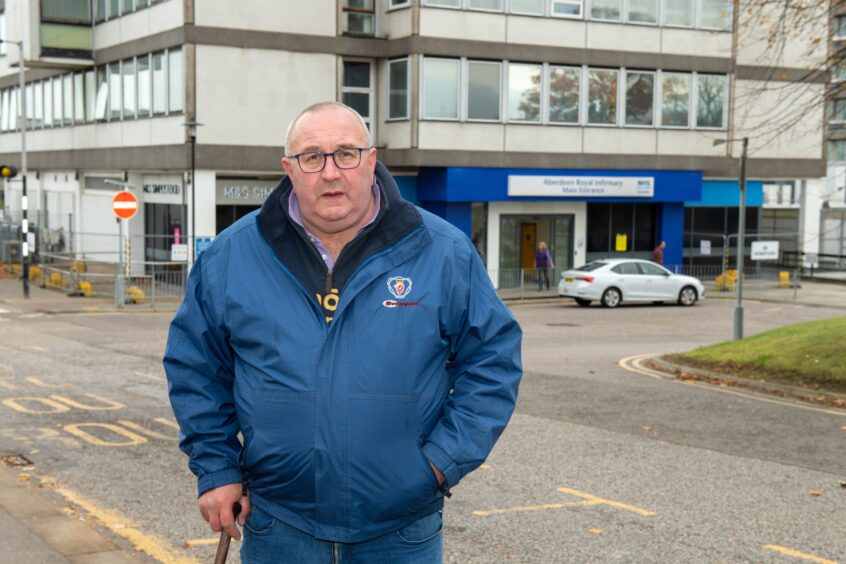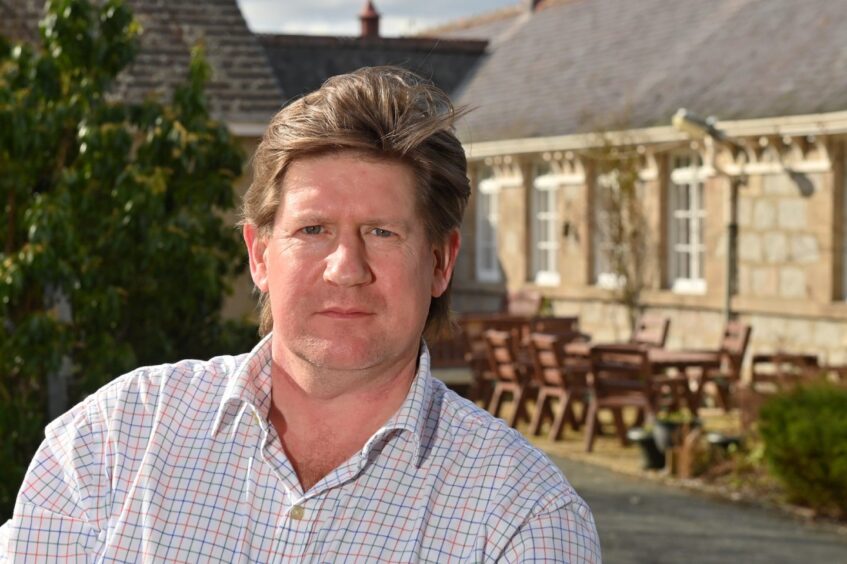An Aberdeenshire man says he has been “living off painkillers” from NHS Grampian for four-and-a-half years as he deals with chronic back pain.
Stuart Dinnie, from Lumphanan, has had a fractured bone in his back since March 2020.
The 59-year-old says he feels “‘totally abandoned” by the NHS – and says he has only been given pain medication to cope with the daily agony.
Since the fracture, Stuart has only been able to sleep in a reclining chair and has also stopped working as a self-employed joiner.
He was given a steroid injection last month, which he says has made his situation “ten times worse”.
Now, he is desperately looking for help to stop his chronic pain.
Stuart forced to quit job as result of injury
Stuart’s ordeal started in March 2020, when he woke up in the middle of the night and attempted to get up from his bed.
When he stood up, he immediately felt a searing pain in his back which led his mother to call the paramedics.
He then received an injection in his back, though the next night the same thing happened again and he was admitted to Aberdeen Royal Infirmary (ARI).
His hospital stay lasted around five days and during this time he had scans which doctors told him showed “wear and tear”.
The pain was so bad for Stuart that he had to give up work.
“I’ve always been a really hardworking person and now not being able to work as a joiner is really knocking me for six,” Stuart told The Press and Journal.
“When I originally went back to work, I could only work about three hours a day because I was in complete and utter agony. Now I’ve had to quit.”
Private hospital trip led to fracture diagnosis
After paying to go to a private hospital when he had carpal tunnel in his hand, he was able to have another MRI scan and x-ray where the doctor concluded he had fractured a bone in his back.
The scan looked identical to the one from his time at ARI – which meant it had taken two years for Stuart to be told he had sustained a fracture.
Stuart also saw an NHS physiotherapist who said to him there was “nothing she could do” since he was in chronic pain rather than severe pain.
Despite Stuart pleading for an operation, all consultants he had seen from NHS Grampian said this would not help.
“For them to turn around and say there’s nothing that can be done, I really don’t believe that,” he said.
“What I want is for this fractured bone to be fixed because that’s what I think is causing the problem.
“And because I’ve been on these pain killers for so long, they’re now messing up my liver and organs.”
‘I am in constant agony’
Because the fractured bone is pressing against Stuart’s spine, he was told that his nerves were compressed.
To fix this, he was given a steroid injection two months ago.
However, the 59-year-old has said this has only increased the amount of pain he is in.
“It’s made the situation ten times worse,” he said.
“I’ve now got pins and needles all the time and am in constant agony.
“During the day, when I’m sitting or standing, my legs move on their own.”
Alexander Burnett, MSP for the Aberdeenshire West constituency, has been helping Stuart throughout his case.
He has also submitted a complaint to NHS Grampian on Stuart’s behalf.
He said: “Stuart’s way of life depends on his ability to work in a skilled, labour-intensive job.
“He’s an active person who I would expect to be a good candidate for rehabilitation.
“This is someone who wants to get off painkillers, back to work and back to some normality as soon as possible.
“I’ve been acting on Stuart’s behalf and I want to see him fit and happy again.
“No one should be parked on painkillers for four years when there is a clear diagnosis and more than likely, a treatment package that will allow him to rehabilitate his back.”
NHS Grampian say chronic pain is ‘complex area’
An NHS Grampian spokesperson said: “While we cannot discuss the specifics of Mr Dinnie’s case, we can confirm several consultants, across a range of specialities, have reviewed his case and met with him.
“Chronic pain is a complex area and we understand the frustration of those suffering from it.
“Speaking more generally, we know waiting lists, for a range of tests, treatments, and procedures, are far longer than we, or the people of Grampian would wish.
“We are committed to working through these lists, ensuring those individuals in most clinical need are seen first.”




Conversation